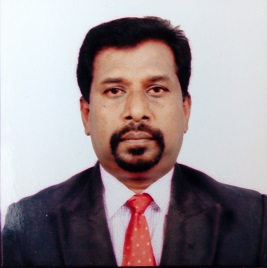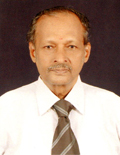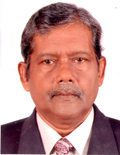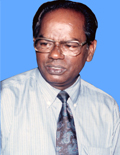History of Faculty of Agriculture
The Eastern University, Sri Lanka is one of the 15 state universities in the country. It was established as a University College with Faculties of Agriculture and Science in 1981 and was conferred independent status as Eastern University, Sri Lanka in 1986. The University is located in the village of Vantharumoolai, Chenkalady, which is on the Batticaloa - Pollanaruwa main road, about 18Km North of Batticaloa town. The region is well endowed with various natural resources and in pre-colonial period was popularly known as the "Granary of the Island". The natural resources include agricultural lands, an annual rainfall ranging between 1500 and 2000mm, surface and underground water for irrigation, dense as well as more open natural forests, range land, and a large population of cattle and buffaloes.
The Faculty of Agriculture, EUSL recognizes the importance of the newly introduced reforms in University Education and a new Corporate Plan is being prepared in order to incorporate several recommendations made by the National Policy for University Education into the present system. The Faculty taking note of the increasing ranks of unemployed graduates, and the need for better trained agriculture graduates, to achieve the regional and national goals, intends to introduce the following changes.
- The introduction of a new academic programme: Semester Based Credit Unit System.
- Cross disciplines and Cross Faculty choice of Modules.
- Skill development activities.
- Multiple entry points into degree programmes and close interaction with State and Private Sector institutions.
- To continue English as the Medium of Instruction.
- Carrier Guidance of Students.
The Faculty shall follow a Semester Based Credit Unit System from the academic year 1999/2000. This will work on a Modular System of Credits. This new Curricula and Syllabi has been developed to suit the Semester System and to expand skill development activities and experiential learning.
The degree programme is to offer a range of modules both compulsory an optional and permit the selection of modules on year by year basis. A student will be able to build the degree around the core modules along with optional modules available in the Faculty and in other Faculties. This will allow maximum flexibility and the avoidance of mass production of 'Clones'. The students will be able to select modules that would provide better career opportunities.
The Faculty identifies the need for better trained agriculture graduates with "do-how" rather than "know-how" training. In view of this; arrangements are being made to provide opportunities for the students to learn by experience in close interaction with Farming Communities, Research Institutes and Private Sector Organizations. A link, with the Tamil Nadu Agricultural University, Coimbatore, India for inviting consultants, upgrading Junior Academic Staff, Staff and student exchange and collaborative research programmes have been established. Action is being taken to develop research link with other Universities, Tea Research Institute, Rubber Research Institute and Coconut Research Institute.
It becomes very important for the Faculty to increase its student number. Therefore the degree programme will allow for multiple entries, over and above the Current Single Entry Point through the Advanced Level Examination. The Faculty, admits students with 3 or 4 defined passes in G.C.E.A/L and with five years field experience in the Agricultural Sector into the Internal degree programme. It is also planning to admit students on merit from a Diploma Course in Agriculture conducted by the Faculty. All possible efforts are being taken to make the Faculty Multi-Ethinic and Multi-Cultural.
Considering the importance of English for higher learning and job opportunities English will continue to be the Medium of Instruction. It is envisaged to organize a career guidance programme for the students to select suitable modules in view of job opportunities, and to assist them in seeking jobs and preparing and presenting themselves to private organizations for employment.
The Faculty also invites visiting staff from Universities and institutions in Sri Lanka and abroad to conduct special lectures. The staff of the Faculty has excelled in research as well as in Breeding of improved Crop varieties such as Chillies, Okra and brinjal, suitable to the region. Research efforts of staff are geared towards both academic interests and solving farmers field problems.
Each student is expected to undertake research on a selected topic, accepted by the department/Division of study concerned, either at the University or in a recognized research institution, for a period of about 4-6 months and submit a dissertation and present a seminar on the research carried out by him/her as partial fulfilment of requirements for the award of degree. Students are encouraged to work in any recognized state or private sector institution during vacations to earn some work experience and broaden practical knowledge in their field of study.
The Faculty has established a Centre for Sustainable Agriculture and Resource Management (CENSARM).
The Faculty has well established Crop and Livestock farms, about 15 acres in extent for teaching purposes and for the issue of seed and planting materials and breeding stock of farm animals to the public. Arrangements are being made to expand these activities in another 50 acres at Kiran, Batticaloa. Equipment and laboratory facilities for teaching and research are available in each Department of study.
Former Deans of the Faculty of Agriculture

Prof .M.Pagthinathan

Dr P.Sivarajah

Prof S. Sutharsan

Dr K.Premakumar

Prof K.Thedchanamoorthy

Prof V. Arulnandhy

Prof S.Raveendranath

Prof S.Sandanam

Dr K.Sabesan
